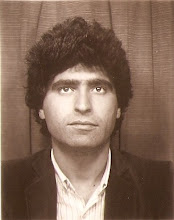A Short Essay on:
Albert Camus'
The Stranger
L'étranger
'The Stranger' is a short French novel written in 1942. The entire novel follows a young, somewhat reclusive man named Meursault. He lives by himself in a small apartment in the city working a standard office job. What makes him significant is that he is apathetic towards everything. Including other people's opinions of him. He refuses to humor people in their expectations of him. He is himself entirely; never pretending he feels when he does not.
When he gets involved in a conflict in Algiers and kills a man, he is arrested and put on trial. However, rather than be tried for the murder, the jury condemn him for the lack of emotion he has about the incident and also his lack of emotion after his mother's death, which happened in the first chapter of the novel. Witnesses are brought in who attest merely to things like his not crying at the funeral, and his having gone to a comedy with his girlfriend the following evening.
The Stranger is clearly an existential piece. By the end of the novel, Meursault comes to the conclusion that the world is indifferent and essentially pointless, and that the only meaning or purpose in life is invented by humans to cope with their meaningless existence.
'The Stranger' is also a statement about our society, in which a person must follow specific social rules or else be ostracized and persecuted. Whether these rules are logical and have purpose is inconsequential. The point is only to follow them. Why? Because everybody else does? Because it gives people's lives something of a fragile structure? Perhaps it is simply human nature? The reason is beside the point. The ultimate truth of the matter is that we live in a world in which we are constantly required to pretend. We are continuously acting. Whether it be fawning our interest to a colleague or indulging the whims of another, when it comes down to it, we are simply humoring others so as not to be scorned.
Meursault is a man who is unwilling (or incapable) of doing just that, and is therefor condemned and executed. His final thoughts however, are a laugh of defiance in the face of those who try and claim that life is anything but a trivial string of events which eventually end:
“For the final consummation and for me to feel less lonely, my last wish was that there should be a crowd of spectators at my execution and that they should greet me with cries of hatred.”

No comments:
Post a Comment